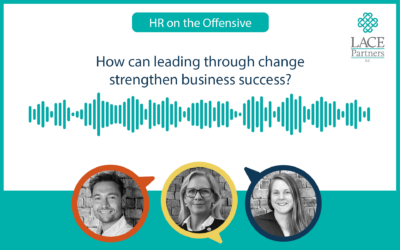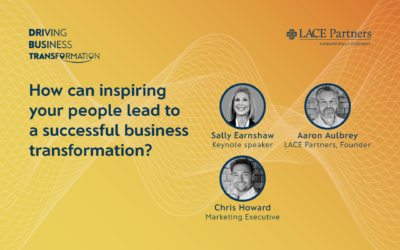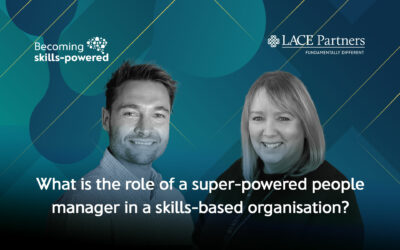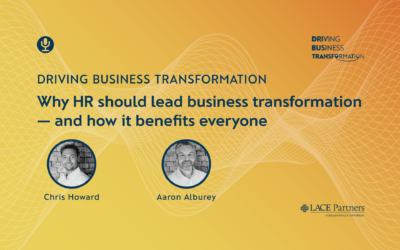As a strategic advisory consultancy to some of the largest UK businesses, we’re occasionally asked at LACE Partners about how HR as a function can be more ‘strategic’. We’re asked what, in practical terms, does it mean to take on a more strategic role. We’re also asked to provide guidance on how to articulate that to the rest of the C-Suite. Back in 2019 when we first released our HR on the Offensive whitepaper we touched on this and particularly the need for HR to ‘step out of the shadows’, to lead on the people agenda to a greater extent and to start thinking more strategically, more consultative in approach to the business to drive real business value.
The world of work has changed dramatically since then as we all know, but we are still asked these questions, perhaps in the context of so much disruption and change that has occurred in the last five years. So for today’s blog – having been asked again recently by a journalist to give our thoughts – we thought we’d give a LACE perspective on how HR can think more strategically, the business benefits of a strategic-thinking People function, as well as what is stopping HR teams from doing it and how HR can help to continue to demonstrate its integral role in the success of any business. So we asked our Chief Executive Officer and Co-Founder, Cathy Acratopulo, to give us some thoughts.
Going beyond service provision
In the world of HR, we often get stuck thinking about ourselves as service providers. Payroll, shared services functions, people analytics teams, benefits, recruitment, etc, are the essential functions that keep the workforce running. They’re operational, administrative, and frankly, reactive. We answer questions, solve problems, and follow processes to make sure things move smoothly. But there’s a whole other side to HR, a strategic side, that deserves a seat at the table.
Here’s the thing: business goals have people implications. Take a simple example – a 20% growth target. Sounds exciting, right? But can we staff for that kind of expansion? Do we have the right skills and mindsets in place to handle that kind of change? That’s where strategic HR comes in.
As HR professionals, we need to be thinking ahead, asking ourselves the tough questions about the “people side” of the business equation. Do we have the right number of people? Do they have the right skills and capabilities? Are we creating an experience that attracts and retains top talent, and gets the best out of them over time? Have we defined our employee value proposition, our ‘deal’ to employees that will deliver the best impact back to the business that drives business results?
Strategic HR isn’t just for the Chief People Officer (CPO)
This strategic approach isn’t just for the C-suite. It needs to be replicated throughout the organisation. Imagine HR Business Partners embedded within different business units, working alongside senior leadership teams. These partners become strategic advisors, anticipating challenges and opportunities related to people.
Meanwhile, our Centres of Excellence/Expertise (COEs) take a broader view. They research leading practices in areas like talent acquisition, development, and reward. They ask: “What does great look like out there?” Then, they translate those best practices into actionable plans for our specific context.
The skills HR needs to think strategically
Here’s the challenge: often, these strategic, operational, and administrative roles get blurred together within HR. But the skills needed for each are vastly different. Think about it – the strategic thinker influencing senior leaders needs a different skill set than the service centre rep focused on customer experience.
That’s why a key aspect of a strategically focused HR function is differentiating these roles. We need to design our HR teams with the right capabilities in mind. HR service centres can become havens for operational excellence, while business partners hone their strategic thinking and influencing skills.
The bottom line? HR needs to be a well-oiled machine, excelling at both the transactional and the strategic. By differentiating roles and capabilities, we can evolve from service providers to strategic partners, ensuring the “people side” of the business is considered in all aspects of decision-making. That’s how HR becomes a true driver of long-term success.
Would you be interested in talking to us about your people strategy? Get in touch using the form below and tell us how we can support you.






